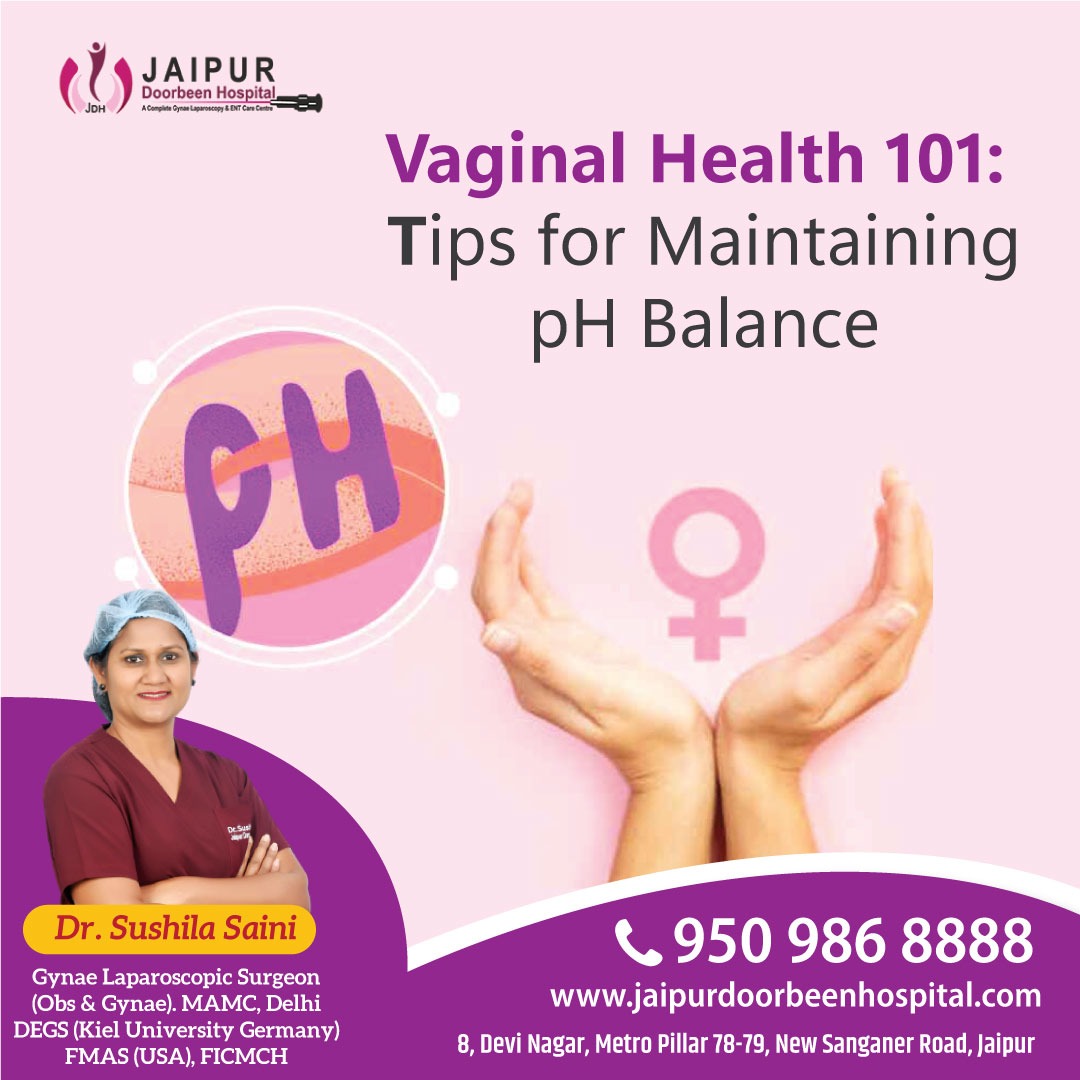02 September, 2023

Vaginal Health 101: Tips for Maintaining pH Balance
Vaginal health is a crucial aspect of overall well-being for individuals with vaginas. Maintaining the proper pH balance in the vaginal area is essential for preventing discomfort, infections, and other complications. In this blog post, we'll delve into the basics of vaginal pH and provide you with valuable tips for ensuring optimal vaginal health.
Understanding Vaginal pH:
Vaginal pH refers to the acidity or alkalinity level of the vaginal environment. The pH scale ranges from 0 to 14, with lower values being acidic, higher values being alkaline, and 7 being neutral. The optimal pH balance for a healthy vagina typically falls in the range of 3.8 to 4.5, which is moderately acidic. This acidity is maintained by a delicate balance of beneficial bacteria, primarily lactobacilli.
Importance of pH Balance:
Maintaining the proper vaginal pH balance is crucial for several reasons:
1. Infection Prevention: An acidic pH inhibits the growth of harmful bacteria, yeast, and other microorganisms that can lead to infections like bacterial vaginosis, yeast infections, and urinary tract infections.
2. Natural Lubrication: A balanced pH promotes the natural production of vaginal fluids, ensuring comfort during various activities, including sexual intercourse.
3. Healthy Microbiome: Lactobacilli bacteria thrive in an acidic environment and play a significant role in preventing infections. They produce lactic acid, which helps maintain the pH balance and creates an inhospitable environment for harmful pathogens.
Tips for Maintaining Vaginal pH Balance:
1. Practice Good Hygiene: Use gentle, fragrance-free soaps or cleansers specifically designed for the vaginal area. Avoid douching, as it disrupts the natural pH and can lead to infections.
2. Choose the Right Underwear: Opt for breathable, cotton underwear that allows air circulation. Avoid tight-fitting synthetic materials that can trap moisture and promote bacterial growth.
3. Stay Hydrated: Drinking plenty of water helps maintain overall bodily functions, including vaginal health.
4. Balanced Diet: A diet rich in fruits, vegetables, whole grains, and lean proteins can positively impact vaginal health. Probiotic-rich foods like yogurt can also support the growth of beneficial bacteria.
5. Safe Sexual Practices: Urinate before and after sexual intercourse to flush out bacteria and maintain a healthy pH. Consider using water-based lubricants if needed, and always practice safe sex to prevent infections.
6. Avoid Excessive Antibiotics: While antibiotics are sometimes necessary, overuse can disrupt the vaginal microbiome. If you're prescribed antibiotics, consider discussing probiotics with your healthcare provider to support the growth of beneficial bacteria.
7. Manage Stress: Chronic stress can affect the body's immune system and hormonal balance, potentially impacting vaginal health. Engage in stress-reducing activities such as yoga, meditation, or deep breathing.
8. Regular Check-ups: Schedule routine gynecological exams to monitor your vaginal health. If you notice any unusual symptoms, such as changes in odor, discharge, or discomfort, consult a healthcare professional.
When to Seek Medical Attention:
If you experience persistent symptoms like itching, burning, unusual odor, or abnormal discharge, it's essential to consult a healthcare provider. These could be signs of an infection or other underlying issues that require medical attention.
In conclusion, maintaining a healthy vaginal pH balance is vital for overall vaginal health. By following proper hygiene practices, making mindful lifestyle choices, and seeking medical advice when needed, individuals can take proactive steps to promote their vaginal well-being and lead comfortable, confident lives.